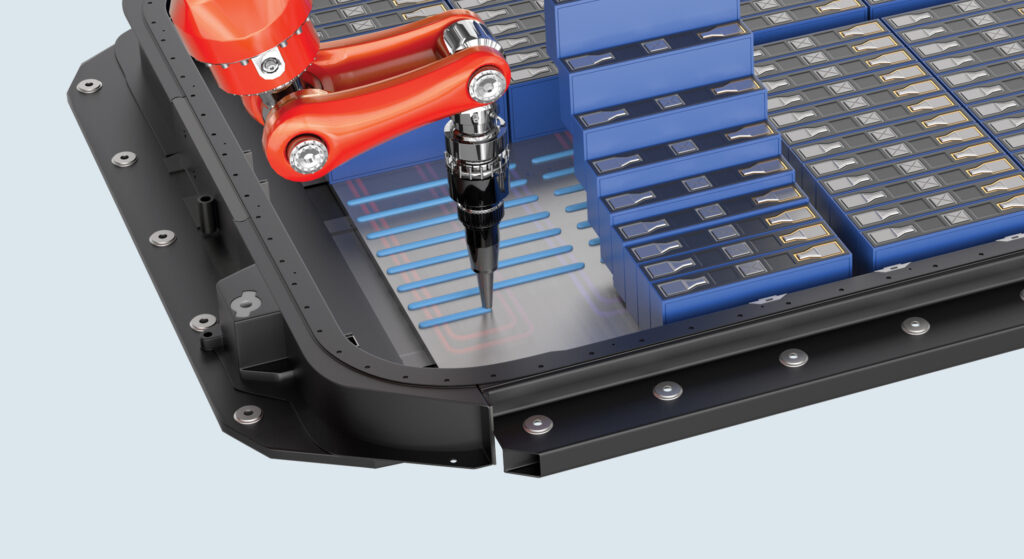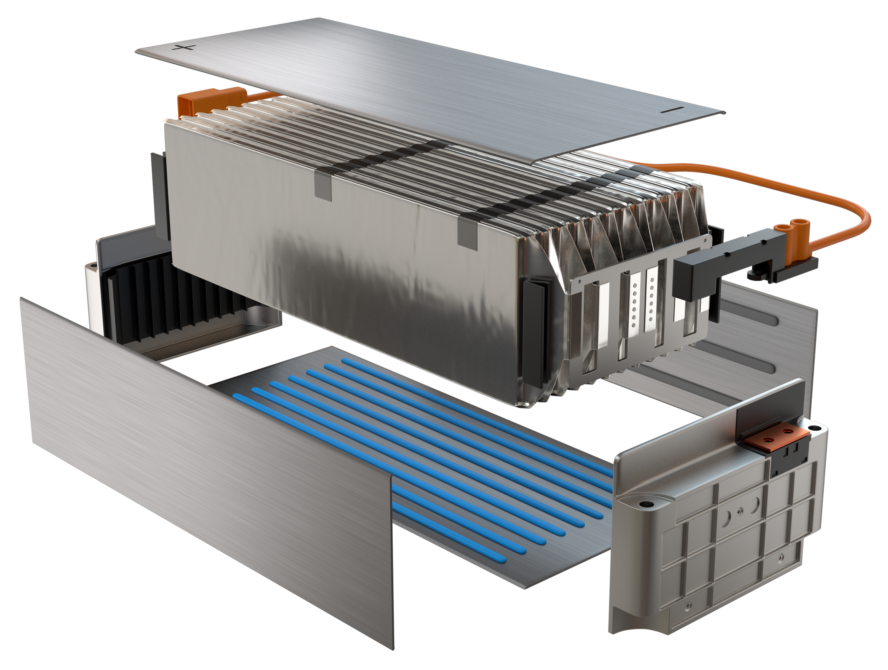ASIA ELECTRONICS INDUSTRYYOUR WINDOW TO SMART MANUFACTURING
Henkel Launches New Injectable Adhesive for EV Battery Systems
Henkel Adhesive Technologies is dedicated to helping solve the challenges of OEMs and battery manufacturers to accelerate the transition toward zero-emission mobility. Therefore, Henkel has extended its broad portfolio of solutions for EV battery systems with a first-of-its-kind injectable thermally conductive adhesive. The new adhesive – Loctite TLB 9300 APSi – provides both structural bonding, as well as thermal conductivity in the battery system. The breakthrough product has already been adopted by one of the world’s largest EV battery manufacturers.

Designed for Battery Cells, Modules
Loctite TLB 9300 APSi suits applications such as bonding battery cells to modules, or bonding cells directly to cooling systems. Specifically, it is a two-component polyurethane thermally conductive adhesive with a high thermal conductivity of 3W/mK, moderate viscosity, and self-levelling characteristics. In addition to its heat management properties, it delivers a unique combination of good electrical insulation with high bonding performance to a variety of substrates. Also, it is a solvent-free solution that cures at room temperature without the need for additional energy consumption. Thus, it helps customers advance their sustainability agenda by reducing emissions and resource use, while also ensuring safer working environments.
“Loctite TLB 9300 APSi is a testament to Henkel’s continued efforts to innovate new e-mobility solutions tailored to solve today’s battery manufacturing challenges and enable the next-generation designs of tomorrow. Its immediate adoption by a major battery manufacturer demonstrates our close partnership with key players in the e-mobility industry to help advance change,” said Holger Schuh, Global Senior Manager Thermal Technologies at Henkel.
Also, Loctite TLB 9300 APSi demonstrates Henkel’s deep expertise and experience in the critical area of thermal interface materials for EV battery systems. These are vital to the enablement of safer and higher performing EVs. Due to its precise application, enhanced design flexibility and improved bond strength, the first-of-its-kind injectable thermally conductive adhesive offers the benefits of a simplified manufacturing process.

“Thermal management in EV batteries is still one of the biggest challenges for electrified mobility. New designs targeting higher energy densities in battery packs bring along the requirement for multifunctional thermally conductive adhesives instead of classical thermal gap fillers. Leveraging our strong innovation capabilities at Henkel, we have started to launch a family of materials varying in thermal conductivity, bonding strength, elasticity, and application methods to address those new requirements,” says Stephan Hoefer, Global Market Strategy Head for E-Mobility at Henkel.
The Trusted Partner in a Fast-Changing Automotive Industry
Henkel is solving the industry’s biggest challenges with advanced materials and accelerating the transition to zero-emission mobility; thanks to its strong innovation teams, global footprint, extended network of dispensing equipment partners and close collaboration with OEMs and battery manufacturers.
Henkel Adhesive Technologies is the global leader in adhesives, sealants, thermal materials and functional coatings for the automotive industry, providing more than 300 high-impact solutions for automotive OEMs and suppliers. Its automotive components department focuses on addressing challenges with high-impact solutions in the areas of e-mobility, automotive electronics, exterior, conventional powertrain, interior, chassis, surface treatment and cleaners & lubricants. Its goal is to accelerate the transformation in the automotive industry by being a long-term partner to its customers with the broadest solution technology on the market.




